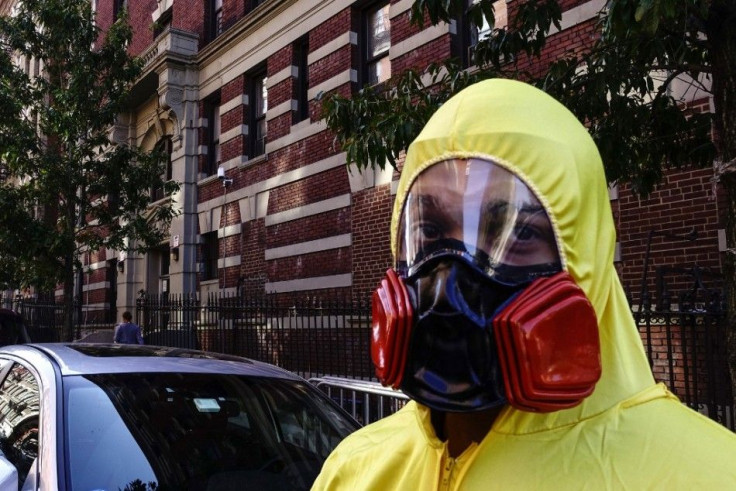Ebola US Quarantine ‘Made Me Feel Like a Criminal,’ To File Lawsuit, Raises Topic of ‘Abuse of Powers’

Kaci Hickox, a nurse returning from Sierra Leone, has slammed the mandatory quarantines imposed by Illinois, New York and New Jersey. She described the process she underwent made her "feel like a criminal." The first person to have such been scrutinized under the new rules, Hickox said she will file appropriate charges over her alleged treatment.
Hickox said she underwent a mis-diagnosis of fever, followed by a transfer to a hospital isolation tent. But what irked her the most was the way she was treated upon her arrival to the U.S. on Friday. "The U.S. must treat returning health care workers with dignity and humanity," she wrote in an article published by The Dallas Morning News on its website. Hickox said she experienced hours of questioning by officials in protective gear. She was even questioned by someone "who must have been an immigration officer because he was wearing a weapon belt that I could see protruding from his white coveralls." When he asked questions, the returning nurse said, it was in a way "as if I was a criminal."
Norman Siegel, Hickox' attorney, said the nurse was still asymptomatic the time she arrived. To confine her when she has not tested positive yet for Ebola raises constitutional and civil liberties issues, Siegel said. "The policy is overly broad when applied to her," Reuters quoted the attorney.
In a statement reported by the New York Times, the American Civil Liberties Union said what Hickox endured raises concerns about the constitutionality of the new rules. "We understand the importance of protecting the public from an Ebola outbreak," but the mandatory orders for isolation "raise serious constitutional concerns about the state abusing its police powers by detaining people who are exhibiting no Ebola symptoms."
In a "frenzy of disorganization," Hickox endured what seemed like a total four hours of grueling questioning by people who didn't even bother to "tell me what was going on or what would happen to me." Three times authorities checked her temperature using a forehead scanner. The very first read 98. Yet she knew she was physically healthy. But "I was already emotionally exhausted...hungry and confused."
Four hours later after the initial temperature was taken, authorities again retook her temperature. This time it shot to 101. But it wasn't because of the suspected Ebola. "My cheeks were flushed, I was upset at being held with no explanation."
Then, with eight police cars all blaring their sirens and flashing their lights, she was escorted to the University Hospital in Newark. At the tent outside of the building, she again went through the processes. Doctors took her temperature and other vitals. Her temperature read 98.6 on the oral thermometer. "You don't have a fever but we were told you had a fever," she wrote of how authorities spoke to her. Looking at the forehead scanner record, the doctor who attended to her felt her neck.
"There's no way you have a fever," Hickox was told. "Your face is just flushed." The returning nurse from Sierra Leone also said the results of her blood test came back, and all were negative of the Ebola virus.





















